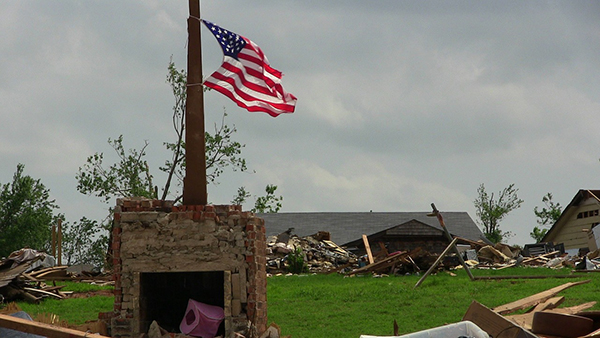
Identifying risk. Making plans to minimize its effects on business operations. Recovering from disruptions seamlessly. That’s all in a day’s work for emergency preparedness consultants.
It’s not just tornadoes, floods and other natural disasters facilities managers need to plan for. There are personnel-related incidents, such as pandemics, that with high rates of absenteeism can cause a business to suddenly shut down for a time. There is also sabotage to consider, workplace violence, infrastructure and technical failure of every kind.
And don’t forget about ransomware threats. These tend to be specific to healthcare facilities at the moment, writes Samuel Boyle, manager of Chicago Department of Public Health’s Emergency Management Services. And they’re costing millions.
“In a nine-month period in 2014,” he writes, “the FBI investigated 1,838 complaints of such attacks, which cost those targeted more than $23.7 million. In 2015, agents investigated 2,453 complaints in attacks that cost targets $24.1 million.”
We’ve compiled a list of 17 experts and consultants in the field of business continuity, disaster recovery and emergency preparedness.
These are the professionals who help keep your world turning when the worst happens.

Tony Suszczynski
The Emergency Preparedness Coordinator at UF Health Jacksonville, Tony Suszczynski explains his job as keeping the 65-acre campus “safe and functioning during natural or man made disasters.” That means having contingency plans in place and running practice drills for more than hurricanes or other weather events.
He writes that his team, working closely with the city’s Emergency Operations Center, drills for “bioterrorism, pandemic flu, exposure to radiation, bombs and blasts and chemical releases (i.e. chlorine gas cloud).” It’s not just his employees, facility and patients he’s protecting: “I am most proud,” he says, “of us being the first hospital in the USA to offer our employees a pet shelter during hurricane season.”
Karen Ketchie
President of Disaster Management Consultants, an emergency management training, consulting and response firm, in Jacksonville, Karen Ketchie is a registered nurse, FEMA-certified Homeland Security Exercise Evaluation Program Instructor, and national speaker on issues of emergency preparedness.
Author of the START2Finish Surge Capacity Response model for healthcare, Ketchie has trained healthcare facilities statewide and has been consulting in all aspects of emergency management for the past 12 years.
Clancy Philipsborn
A retired floodplain manager who specializes in disaster recovery, development and mitigation plans, Clancy Philipsborn is a disaster recovery and hazard mitigation consultant. His experience includes redevelopment planning, building codes, land-use and multi-objective management issues, and FEMA programs and policies (having written many of the manuals himself). He says questions are welcome.
Kate Uraneck
An emergency physician, Kate Uraneck is also a disaster and preparedness specialist, and has been consulting with hospitals, medical device companies and government agencies since 2012.
Uraneck was the senior medical coordinator at the NYC Department of Health and Mental Hygiene for 10 years. There, she focused on mass fatality planning, and radiation and nuclear response, among others.
Jeffrey Alderdice
Based in Washington, D.C., at the National Cancer Institute and Maryland Defense Force, emergency preparedness manager Jeffrey Alderdice plans for and oversees operations during disasters.
Alderdice, who saw three combat tours in Iraq and is a first responder, is a graduate of the Federal Emergency Management Agency’s National Emergency Management Academy.
Cassandra Stelter
As emergency preparedness and risk management specialist at Gonzaga University in Spokane, Washington, Cassandra Stelter is part of a team that follows the school’s stated mission “to support a safe teaching and learning environment for University staff, faculty, students, visitors and partners by promoting and implementing enterprise risk management practices.”

Nicole Knapp
An emergency preparedness consultant at Energy Compliance Consultants, Nicole Knapp brings nearly 15 years of experience (including a decade in nuclear emergency response) to on-site consults. She is also available for consultations via her home-based office.
Knapp can assist in emergency preparedness and responses, training and program compliance, self-assessments and audits, and drill and exercise support.
Kent Schod
Located in York, Pennsylvania, Kent Schod is an emergency management consultant with more than 30 years’ experience in emergency services, including management and response. His multi-faceted career includes nearly six years with Holy Cross Health, the second largest hospital in Maryland, where he developed the facility’s emergency operation plan as well as those for its satellite clinics and offices.
George Gabriel
Former FBI special agent George Gabriel is now with WBB Consultants, serving as manager of the Security, Preparedness and Emergency Management section. His decades-long experience in security-related matters makes him the go-to for plan development and strategic planning, infrastructure protection, counter-terrorism measures, modeling, simulation, and training.
Paul Kirvan
If you’re looking for an expert in business continuity, disaster recovery, information security, and technology risk, you may want to reach out to Paul Kirvan. The independent consultant has nearly 30 years’ experience specific to business continuity and disaster recovery, with more than 15 years spent in IT auditing and advisory services.
Brian Zawada
A business continuity consultant with Avalution Consulting in Cleveland, company co-founder Brian Zawada serves as director of consulting. A former intelligence officer in the U.S. Air Force, he focuses exclusively on recovery, whether the disruptive event is a natural disaster, a man-made threat, a threat to personnel (e.g. a pandemic) or a loss of key suppliers.
Zawada recommends businesses have pre-planned strategies and proactive controls in place before disruptive events occur. These will minimize or even preclude disruptions. Similarly, crisis management strategies and business and IT disaster recovery plans will move the company forward to business as usual in a timely manner.
Kathleen Gleaves
Specializing in the marine, aviation and public transportation industries, emergency and business continuity planner Kathleen Gleaves does it all: She will analyze a company’s needs, write the plans, train staff, and test plans through drills and exercises. Her agency, Gleaves Consulting in Seattle, is collaborative, ensuring that the user-friendly plan developed is specific to your business, formulated for business continuity and operational resilience.

Patrick Dunn
The lead consultant in the Business Continuity and Disaster Recovery department for Cognizant Technology Solutions, Patrick Dunn is a nationally recognized expert in the field, with some 25 years of IT experience.
In a short post, he clarifies the difference between business continuity and disaster recovery: “Business continuity is the people process for continuing operations after a recovery, and disaster recovery is the technical/infrastructure piece of recovery. Both are linked, but neither are interchangeable.”
Joshua Norman
As president of Resilire Consulting in New Orleans, Joshua Norman can call on years of experience in the crisis and emergency management industry, which includes a decade of firefighting and five years running his own disaster recovery consultancy. As a federal program specialist for disaster recovery programs, Norman also provided senior-level consulting to municipal offices in the aftermath of hurricanes Katrina and Ike.
Mark Turnbull
With 18 years’ experience exclusively in business continuity and disaster recovery planning (and an additional two decades in the IT industry), Mark Turnbull — president of Turnbull Consulting in Jacksonville, North Carolina — knows what it takes to protect your critical systems and how important it is to have a recovery plan in place.
Turnbull identifies the five steps to recovery confidence as project management, risk assessment, business operations, technology infrastructure and annual maintenance.
Mark Merritt
Co-founder of the crisis management consulting firm DCMC Partners, Mark Merritt, along with co-founder Barry Scanlon and partner Drew Sachs, help “organizations prepare for, mitigate, respond to and recover from crises and disasters of all kinds.”
Merritt’s experience over the past 13 years has been supporting clients in every major disaster in the US, which includes everything from obtaining insurance payouts and government reimbursement to managing large-scale clean-up operations.
Betty Kildow
Business continuity management consultant, trainer, speaker and author Betty Kildow takes an in-depth, 27-point look at how to choose disaster recovery and business continuity planning software in her article Measuring the Merits of Business Continuity Planning.
Named a Fellow of the Business Continuity Institute (FBCI) in 2002, Kildow became a Certified Business Continuity Professional (CBCP) with the Disaster Recovery Institute International in 1998, and has specialized in business continuity, disaster recovery, and emergency management consulting since then.
Credits:
RevDPHans Braxmeier
Adina Voicu
